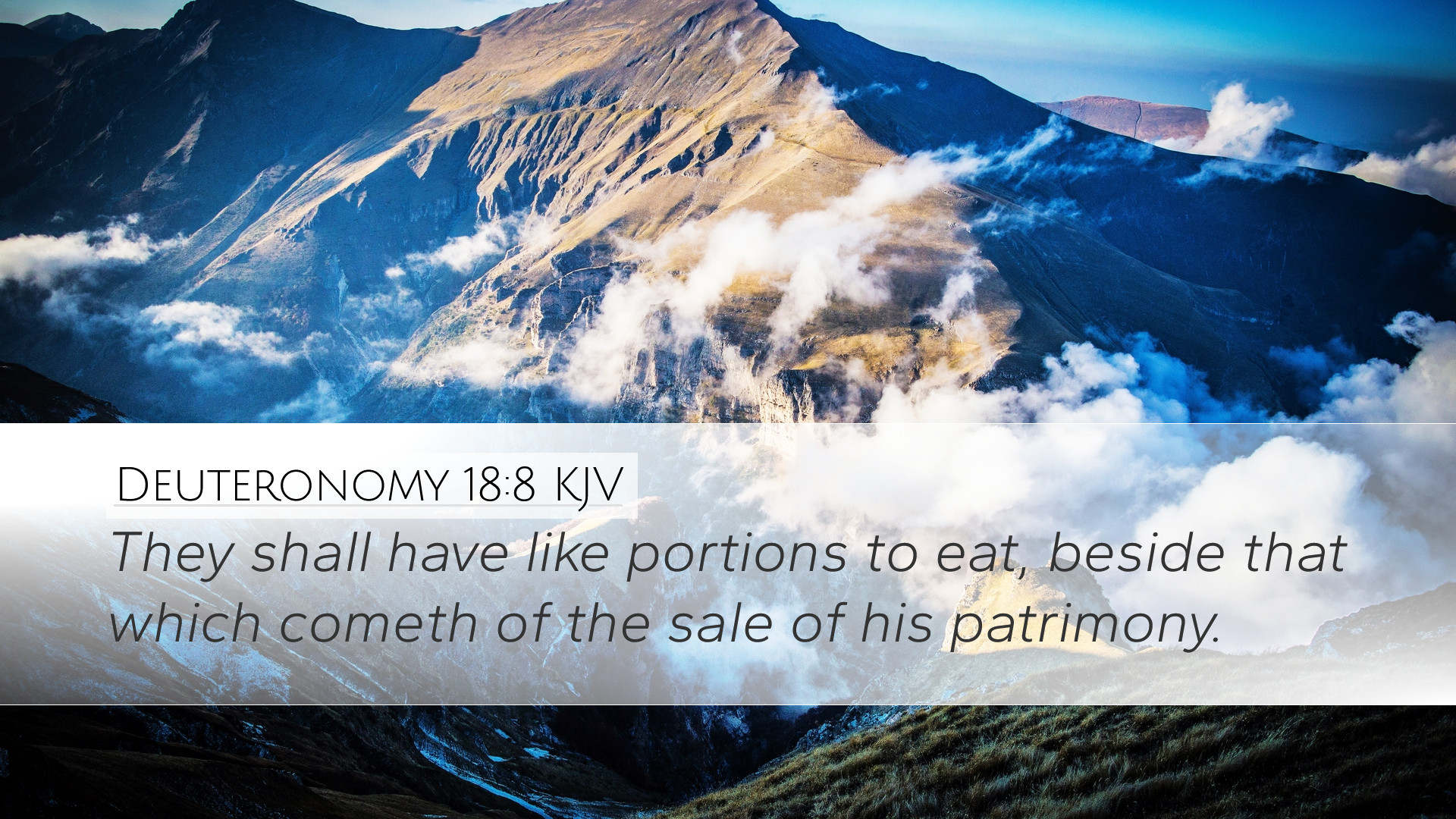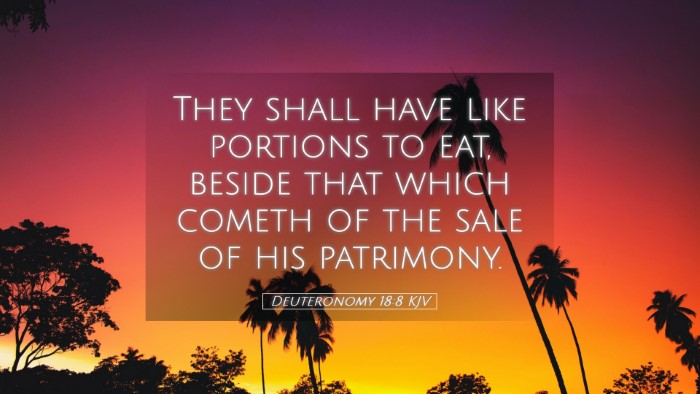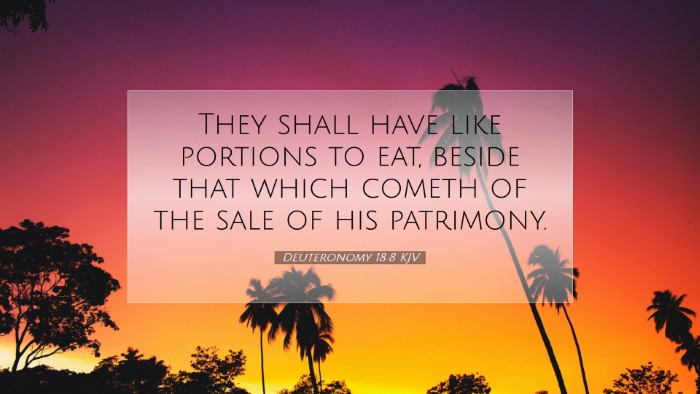Commentary on Deuteronomy 18:8
Verse Reference: Deuteronomy 18:8 - "They shall have like portions to eat, besides that which cometh of the sale of his patrimony."
Introduction
The verse in Deuteronomy 18:8 speaks to the provisions made for the Levites within the Israelite community. As the priestly tribe, the Levites were set apart for sacred duties and were not allotted a traditional inheritance of land, which is a critical aspect of their identity and function within Israel. This commentary combines insights from Matthew Henry, Albert Barnes, and Adam Clarke to provide a comprehensive understanding of this verse.
Historical Context
The Levites' role was crucial in ancient Israel. They served in the Tabernacle (later the Temple), offered sacrifices, taught the law, and maintained the spiritual life of the nation. Their lack of a land inheritance was intentional—God Himself was to be their inheritance (Numbers 18:20). This chapter in Deuteronomy lays out the expected support and provision for the Levites by the rest of Israel, which reflects broader principles of stewardship and communal responsibility.
Exegesis of the Verse
- The Meaning of “Like Portions”: According to Albert Barnes, 'like portions' indicates that all Levites are entitled to equitable provisions, highlighting a sense of equality among them despite their diverse responsibilities.
- The Concept of Inheritance: Matthew Henry notes that while the Levites lack a territorial inheritance, their sustenance comes from the goodwill of those they serve, illustrating God’s provision even when earthly means are lacking.
- Sales from Patrimony: Adam Clarke emphasizes the importance of understanding ‘patrimony’—the income generated from family property, which the Levites could monetize. This right ensured their welfare even when their duties demanded their full attention to spiritual matters.
Theological Implications
This verse invites deep theological reflection on several dimensions:
- Divine Provision: The arrangement underscores that God’s servants should not worry about their needs; God will provide through the community.
- Community Responsibility: The expectation that Israelites would support the Levites echoes New Testament principles of supporting ministers of the gospel (1 Timothy 5:17-18).
- Equality in God’s Economy: The allocation of 'like portions' stresses that within God’s family, all members, including Levites, share in the blessings of the community.
Application for Today’s Context
For modern pastors, scholars, and believers, this passage serves as a reminder of the practical outworking of faith through community support and the vital role that spiritual leaders play in maintaining the health of the church. Here are a few contemporary applications:
- Supporting Ministry: Churches are encouraged to adequately support their ministers and staff, reflecting the communal responsibility described in this verse.
- Recognizing Spiritual Gifts: Just as the Levites were set apart for service, churches today should recognize and honor the different gifts among their members that contribute to the body of Christ (1 Corinthians 12:12-27).
- Service and Sacrifice: The Levites exemplified a life of service; similarly, all believers are called to a life of sacrificial service to God and one another.
Conclusion
Deuteronomy 18:8 not only narrates an aspect of the Levitical system but also underscores the broader themes of God's provision, community responsibility, and the gravity of sacred service. As we study this verse, we are invited to reflect on our support of church leaders, our understanding of divine provision, and our collaborative role in the family of God.


